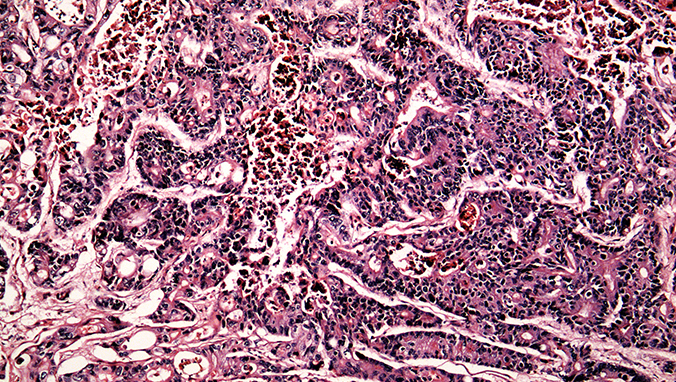How to get poorly differentiated adenocarcinoma of the stomach
Stomach poorly differentiated adenocarcinoma is a type of gastric cancer. It is generally found in the middle and late stages, and the prognosis is generally poor. It has many morbidity factors, such as: irregular diet, long-term alcohol and smoking, and the geology of the place of residence And the water contains harmful substances, Helicobacter pylori infection, genetic factors, poor long-term mental state, etc., are all its causative factors.

Regional environment and diet Life factors
There are obvious regional differences in the incidence of gastric cancer. The incidence of gastric cancer in the northwest and eastern coastal areas of China is significantly higher than that in the south. People with long-term consumption of smoked and salted foods have a high incidence of distal gastric cancer, which is related to the high content of carcinogens or pre-carcinogens in foods such as nitrite, mycotoxins, and polycyclic aromatic hydrocarbon compounds; the risk of stomach cancer in smokers 50% higher than non-smokers.
Helicobacter pylori (Hp) infection
The adult Hp infection rate in the high incidence area of gastric cancer in my country is above 60%. Helicobacter pylori can promote the conversion of nitrate to nitrite and nitrosamine and cause cancer; Hp infection causes chronic inflammation of gastric mucosa plus environmental pathogenic factors to accelerate the excessive proliferation of mucosal epithelial cells, leading to distortion and cancer; Helicobacter pylori toxic products CagA and VacA may have a cancer-promoting effect, and the detection rate of anti-CagA antibodies in gastric cancer patients is significantly higher than that of the general population.
Genetics and genes
Genetic and molecular biology studies have shown that the relatives of gastric cancer patients with blood relationship are 4 times higher than the control group. The canceration of gastric cancer is a multi-factor, multi-step, and multi-stage development process, which involves changes of oncogenes, tumor suppressor genes, apoptosis-related genes, and metastasis-related genes. The forms of gene changes are also diverse.
In general, for the treatment of poorly differentiated adenocarcinoma of the stomach, it has been found that as long as the patient can withstand surgery, prompt surgical treatment, active chemotherapy treatment after surgery, regular review after surgery, postoperative 3 Once every March to June during the year, once every June for 3-5 years, and once a year after 5 years. Gastroscopy is performed once a year.
Related Articles

- What are the symptoms of Crohn's disease?
- 2020-12-17

- Teach you a few tricks to deal with your child's jaundice
- In the clinic, we found that half of the newborn babies will become yellow (60% full term infants, 80% premature infants). Such children are usually diagnosed as neonatal jaundice. The reas
- 2020-08-02

- Why Chinese mothers breastfeeding rate is not high
- Today, the proportion of Chinese mothers who breastfeed exclusively is not high. Information shows that the proportion of Chinese mothers who are "breastfeeding" is 52.4%; followed
- 2020-08-02

- Breastfeeding children are more adaptable to the outside world
- Breastfeeding has many benefits. The latest research shows that breastfeeding children are more adaptable to the outside world. Studies have shown that breastfeeding children aged 0 to 1 y
- 2020-08-02

- Breastfeeding is good for mothers
- Everyone knows the benefits of breastfeeding, and has repeatedly emphasized that 4-6 months of exclusive breastfeeding is enough. However, according to surveys, breastfeeding rates in China
- 2020-08-02

- Baby grow up, how to add food supplement
- Xiaobao is 7 months old. The baby''s grandma said that it is time to add supplementary food to the baby. This morning, Grandma carefully steamed the eggs for her grandson. She told
- 2020-08-01
